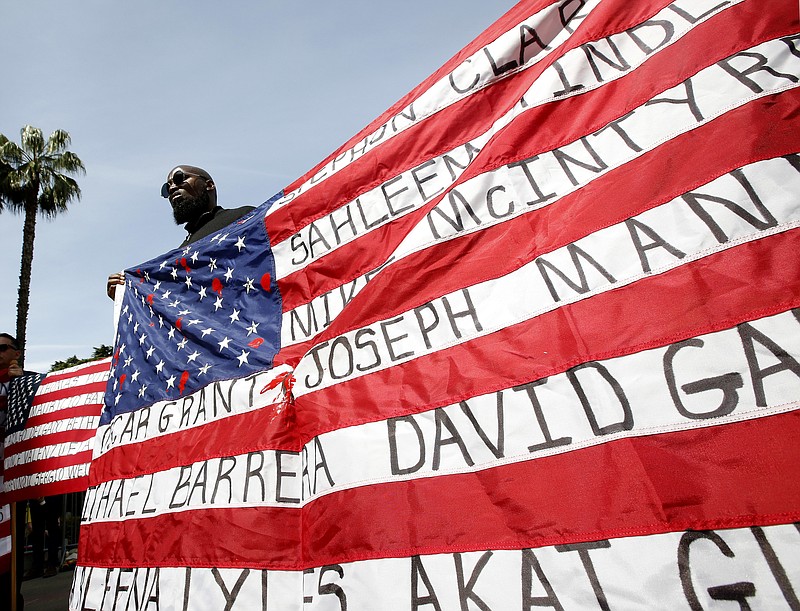SACRAMENTO, Calif. (AP) — California lawmakers worked to find common ground Tuesday between law enforcement groups and reformers intent on adopting first-in-the-nation standards designed to limit fatal shootings by police.
A state Senate committee linked a police-backed measure requiring more training to a competing proposal allowing police to kill only if they have exhausted non-lethal methods of resolution or de-escalation. The latter was inspired by the fatal police shooting of unarmed vandalism suspect Stephon Clark last year in Sacramento.
The move aims to force negotiations between the sides by combining the most progressive elements of each plan. It also may mean no changes will ultimately become law for the second consecutive year, unless the sides can reach agreement on a contentious and highly emotional issue.
Sen. Nancy Skinner, a Democrat from Berkeley who chairs the Senate public safety committee, said she hopes the committee’s move will lead to productive conversations.
“We might come to a place where we both have revised use-of-force standards and good associated training so that California could move forward,” Skinner said.
The police-backed measure would set a national precedent by creating statewide guidelines on when officers can use lethal force and requiring every officer be trained in ways to avoid opening fire.
As part of the compromise effort, Democratic Sen. Anna Caballero, of Salinas, stripped her proposal of a section to enshrine in law current use-of-force standards that let officers kill if they reasonably believe they or others are in imminent danger.
Since that standard has been set by the courts, it would remain if no compromise is reached.
Democratic Assemblywoman Shirley Weber, of San Diego, who proposed the tougher restrictions on police, has not yet sat down with law enforcement negotiators, her spokesman, Joe Kocurek, said. He did not immediately comment on the Senate committee’s action.
Law enforcement leaders said the proposal they support incorporates best practices from around the country. Aside from the use-of-force policies and training, it would require the policies be public and ensure standards for reporting using force.
It would require officers to provide medical aid to injured suspects and to report and stop any excessive force they see used by other officers.
The training includes how to better respond to mental health crises, which Protect California president Robert Harris said account for nearly 25 percent of all fatal officer-involved shootings. Law enforcement groups formed the nonprofit to promote their alternative to changing the legal standard for using force.

